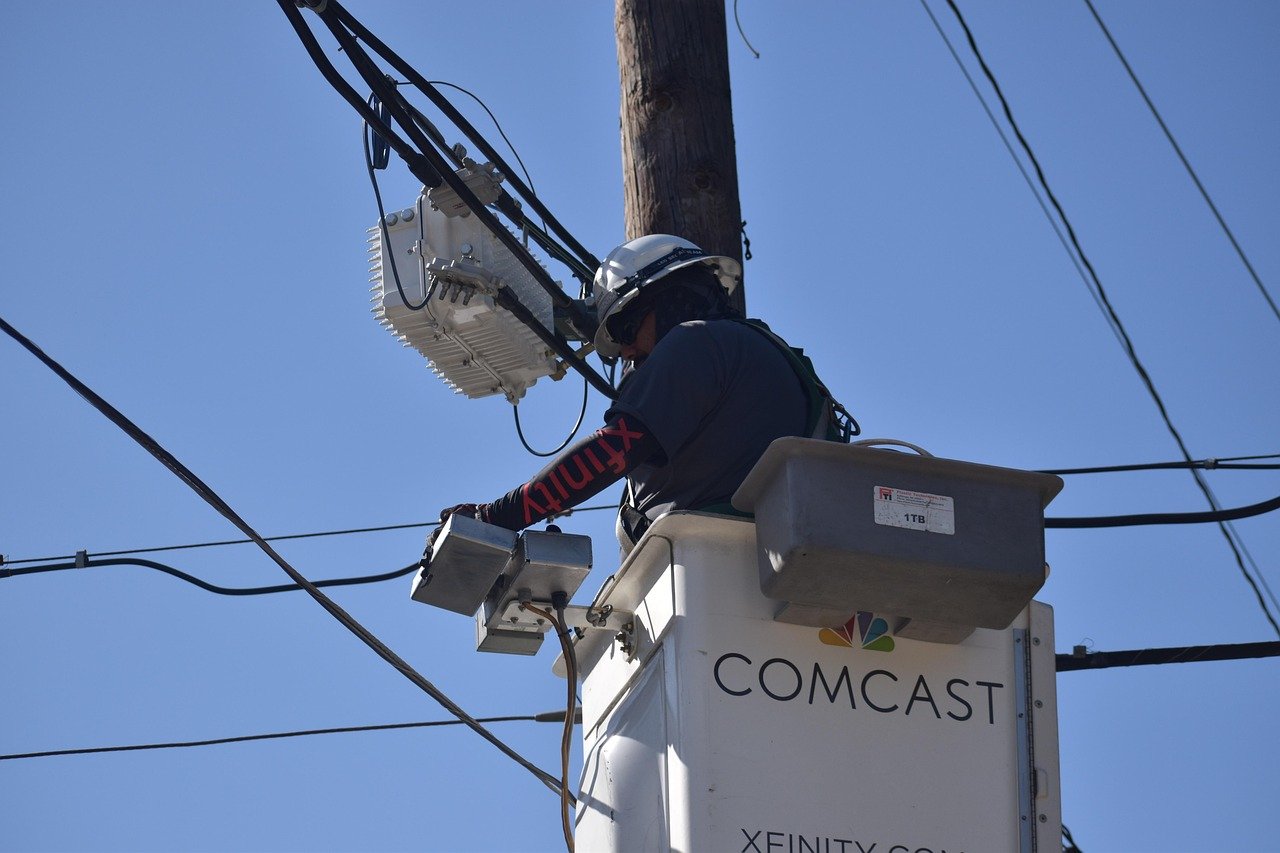Comcast, a powerhouse in media and telecommunications, has long touted its Diversity, Equity, and Inclusion (DEI) programs as a key part of its corporate identity. From connecting underserved communities to promoting diverse hiring, the company has leaned heavily into DEI. But recent scrutiny from the Federal Communications Commission (FCC) has forced Comcast to rethink its approach, reflecting a growing push for fairness and merit over identity-based policies. This article explores Comcast DEI initiatives, the controversies driving change, and what it means for the industry, keeping things straightforward for all readers.
Comcast’s DEI Programs: A Well-Intentioned Start
Comcast has built a suite of DEI initiatives aimed at fostering inclusivity. Its flagship Project UP, backed by a $1 billion investment, seeks to provide internet access, digital skills, and media career paths to underserved communities. The company also runs DE&I Day, an annual event to celebrate diversity, alongside a DE&I Speaker Series to raise awareness among employees. Mental Health Week promotes a workplace where workers feel supported, while supplier diversity efforts have funneled $18 billion to diverse Tier 1 suppliers since 2010.
In its media arm, Comcast has pushed for diverse programming, like the Black Experience on Xfinity, which invests in Black content creators and has been endorsed by groups like the African American Film Critics Association. The company set bold goals, such as a 50% nonwhite workforce at NBC News, and its website once boasted DEI as a “core value,” highlighting workforce demographics and a top score on an LGBTQ+ workplace index. These efforts were framed as a way to boost innovation by embracing varied perspectives.
FCC Crackdown and Comcast’s DEI Pivot
In February 2025, the FCC, under Chairman Brendan Carr, launched a probe into Comcast’s DEI practices, part of a broader effort to root out what the Trump administration calls “illegal discrimination.” The investigation questions whether Comcast DEI programs unfairly prioritize certain groups, potentially sidelining qualified candidates based on race, gender, or other identities. This aligns with a growing sentiment that policies should reward hard work and ability, not arbitrary demographics.

Comcast has responded decisively, cooperating with the FCC and scrubbing DEI content from its website. Initiatives like Project UP now emphasize “digital opportunity” instead of “digital equity,” signaling a shift toward universal access over targeted group benefits. The company’s former chief diversity officer, Dalila Wilson-Scott, is now the chief impact and inclusion officer, a title change that reflects a broader, less divisive focus. Comcast’s updated website highlights efforts like supporting military veterans and ensuring product accessibility, but the language centers on equal opportunity for everyone.
In a statement to The Philadelphia Inquirer on April 29, 2025, Comcast stressed its commitment to fairness: “For decades, our company has been built on a foundation of integrity and respect for our employees and customers. Our business is stronger when we create an inclusive culture where all are welcome, differences are respected, all employees feel valued, and everyone has an equal opportunity to succeed.” This pivot shows Comcast aligning with a merit-based approach, ensuring compliance with federal expectations while maintaining a positive workplace.
The DEI Problem: Good Intentions, Flawed Execution
DEI has become a lightning rod in corporate America. Supporters claim it corrects historical inequities, giving marginalized groups a fair shot at opportunities. For Comcast, diverse teams could, in theory, spark creativity and better connect with varied audiences, as seen in programming like the Black Experience on Xfinity. But critics argue DEI often overreaches, creating systems where hiring and promotions favor identity over qualifications. This can lead to reverse discrimination, where talented individuals are passed over simply because they don’t check the right demographic box.
The FCC’s probe into Comcast DEI efforts, alongside similar investigations into Disney and Verizon, reflects a broader backlash against DEI’s potential to undermine meritocracy—the principle that success should come from skill and effort. Chairman Carr has called out Comcast’s NBCUniversal outlets, like MSNBC, for biased coverage, suggesting DEI’s influence may extend beyond hiring to editorial decisions. Industry observers warn that poorly designed DEI programs can breed resentment, making employees feel judged by their race or gender rather than their work. For Comcast, the challenge is clear: foster a workplace where everyone has a fair chance without tipping the scales based on identity.
How DEI Has Shaped—and Strained—Comcast
Comcast’s DEI push has had real effects. Its 2024 Impact Report shows gains in workforce diversity, with more representation across employee groups over the past decade. This has driven inclusive programming and community efforts like Project UP, which has connected millions to digital tools. These are tangible wins, showing how a focus on underserved groups can yield results.
But the FCC’s scrutiny threatens to upend these efforts. Comcast’s rebranding of DEI initiatives suggests a retreat from explicit diversity goals, like the 50% nonwhite workforce target at NBC News, in favor of hiring based strictly on merit. This shift could streamline operations, ensuring the best candidates rise to the top regardless of background. However, it risks alienating those who see DEI as a moral imperative, potentially impacting Comcast’s reputation among certain audiences.
The media industry is feeling the ripple effects. Disney has scaled back DEI, dropping diversity metrics from executive pay, while PBS has closed its DEI office outright. This trend points to a broader reckoning, where companies are rethinking identity-based policies to avoid legal and public backlash. For Comcast DEI efforts, the stakes are high: balancing inclusivity with fairness will determine its ability to lead in a competitive market.
The Road Ahead: Merit First, Opportunity for All

Comcast’s future lies in embracing a model that rewards talent and hard work while still supporting diverse communities. The company’s recent moves—reframing Project UP as a universal access program and emphasizing equal opportunity—suggest a path forward. By focusing on fairness, Comcast can ensure every employee and customer has a shot at success based on what they bring to the table, not their identity.
Moving forward, Comcast may double down on initiatives that empower all Americans, like expanding internet access through Project UP without framing it as an equity issue. Partnerships with community groups could continue, but with a focus on broad impact rather than specific demographics. This approach aligns with a growing demand for policies that unite rather than divide, prioritizing individual achievement over group-based outcomes.
The media industry is likely to follow suit, with more companies rethinking DEI to emphasize merit and fairness. Comcast DEI strategies will be crucial for maintaining its edge as a corporate leader, proving it can foster a strong, inclusive workplace without sacrificing the principles of hard work and equal treatment.
Conclusion: Comcast DEI and the Return to Fairness
Comcast’s DEI saga underscores a critical moment for corporate America. The FCC’s investigation has forced the company to confront the flaws in identity-driven policies, pivoting toward a model that champions merit and fairness. By rebranding Comcast DEI initiatives and emphasizing equal opportunity, Comcast is charting a course that respects individual achievement while still supporting diverse communities.
This shift is a wake-up call for the industry. Companies must find ways to foster inclusivity without undermining the core belief that success comes from talent and effort. Comcast DEI evolution shows that progress doesn’t mean pitting groups against each other—it means giving everyone a fair shot to shine. As the debate over DEI continues, the focus should remain on building a system where hard work and ability are the ultimate measures of success.


